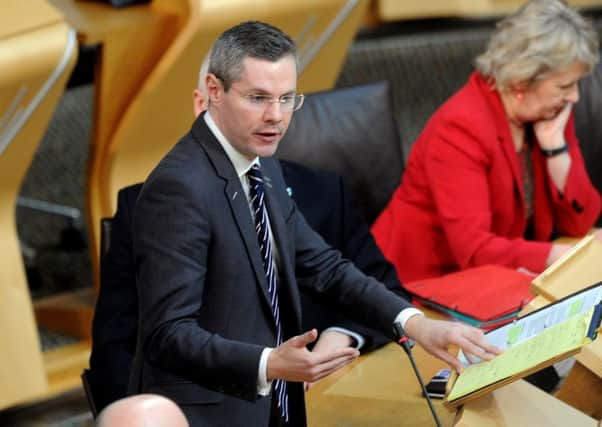Tommy Sheppard: Business rates response shows democracy in action


Two thirds of local businesses saw no increase or a cut but some were facing dramatic eye-watering hikes in their rates. The hospitality trade – hotels, pubs and restaurants – seemed to be worst affected. Business owners contacted their local political leaders in anger and panic. They feared, rightly, that the scale of the increases could put them under.
Councillors and Members of Parliament got involved, taking up the case of businesses in their areas. And last week the Scottish Finance Secretary, Derek Mackay, stepped in to limit increases to 12.5 per cent. Problem identified. Representation made. Action taken. Case solved. If only it happened that way all the time.
Advertisement
Hide AdAdvertisement
Hide AdThe Scottish Government’s intervention means Porty pubs and Tollcross taverns can breathe a sigh of relief. It creates a breathing space to consider how changes in rateable values can be phased in. It also means that we can all take a look at how the organisation in charge of the process, the Lothian Valuation Joint Board, does its business. From my investigations I’m pretty sure that part of the problem is out-of-date methods leading to out-of-date results.


I’ve always thought there’s a logical simplicity to the idea of rates. Edinburgh is worth a certain amount and we all own a share of it, no matter how small. So in deciding how to fund the city it seems fair to allocate costs to each of us according to how much of it we own. So far, so good. But this only works if the way we calculate value is fair and transparent.
The Valuation Board assume that a reasonable estimate of the value of a property is the rent it would fetch on the property market. That might be true in the city centre where most property is leased but that’s just not the case in other areas. The growth in bars, cafes and restaurants in places like Portobello and Leith Walk in the last 20 years hasn’t come from corporations and franchises expanding. It’s been the result of individuals taking a risk on setting up a business. Usually, ploughing their savings into buying and developing a property. In areas where most businesses are owner-occupied its plain daft to base their value on the minority of rented places. Worse, if some of these rented properties are owned by large pub companies driving up rents by contract rather than market price, it makes it look like values are increasing when they are not.
In some cases, particularly with pubs, the Board base value on turnover. But as anyone who has run a business will tell you there’s a world of difference between turnover and profit – a busier pub doesn’t necessarily mean you are making more. And if you set up a business in an area because rates are low only to find they get hiked if you make a success of it, it sort of defeats the purpose.
Advertisement
Hide AdAdvertisement
Hide AdIf we are going to base charges on value then maybe what a place costs to buy would be fairer.


However value is calculated, we need to take account of ability to pay. That’s why transitional relief should assist people facing huge increases. The Scottish Government have just offered the mother of all transitional relief schemes – but rightly it’s a temporary measure. Now the challenge falls to the city council to make things fairer in years to come.
Tommy Sheppard is SNP MP for Edinburgh East